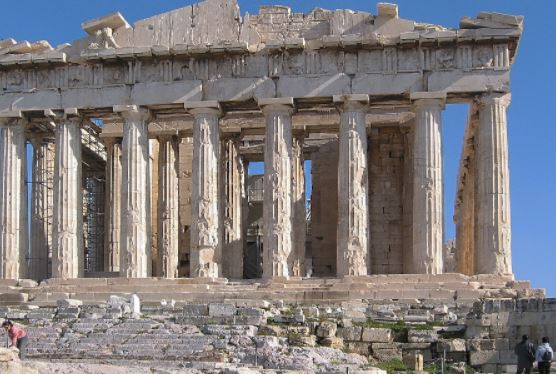Classical antiquity

Classical antiquity (also the classical era, classical period or classical age) is the period of cultural history between the 8th century BC and the 6th century AD centred on the Mediterranean Sea,[note 1] comprising the interlocking civilizations of ancient Greece and ancient Rome known as the Greco-Roman world. It is the period in which both Greek and Roman societies flourished and wielded huge influence throughout much of Europe, Northern Africa, and Western Asia.
Conventionally, it is taken to begin with the earliest-recorded Epic Greek poetry of Homer (8th–7th-century BC), and continues through the emergence of Christianity (1st-century AD) and the fall of the Western Roman Empire (5th-century AD). It ends with the decline of classical culture during Late antiquity (250–750), a period overlapping with the Early Middle Ages (600–1000). Such a wide span of history and territory covers many disparate cultures and periods. Classical antiquity may also refer to an idealized vision among later people of what was, in Edgar Allan Poe’s words, “the glory that was Greece, and the grandeur that was Rome
